
Last November, NHK aired a program on the theme of Satoshi Nakamoto, the creator of Bitcoin. Mr. Toyotaka Sakai, a professor at Keio University’s Faculty of Economics, was involved from the planning stage and was responsible for guiding the flow of the program through his scenes. It’s been 4 years since he appeared in an interview at the beginning of the year in January 2020. We asked him what he thought about the movements of Bitcoin and crypto assets during that time, and what he thought about the current situation.
A grand social experiment of monetary easing
──NHK aired a program on Satoshi Nakamoto last November. You were involved from the planning stage and appeared in many scenes. How was the reaction?
Sakai: A lot of my crypto assets/blockchain friends watched it. The best thing about becoming addicted to Bitcoin, crypto assets, and blockchain was being able to meet like-minded people. It’s good when prices go up, but even when they go down, people say things like “winter is winter and it’s fun.” I was happy that such people said that it was interesting.
──“Winter of crypto assets”calledAt this time of year, the snow has melted a little and it feels like spring is coming. I also felt that it was very significant that NHK communicated the potential and impact of Bitcoin at a time when Web3 was attracting attention.
Sakai:The last time I was interviewed for the New Year’s special feature was in January 2020. At the time, Bitcoin was worth about 800,000 yen. Even though the yen is weak these days, it costs about 6 million yen (at the time of interview). The price is just a guideline, but it feels like a world away.
Regarding that program, I feel that the times have changed significantly when NHK featured a special feature on Bitcoin during prime time. Four years ago, when you talked about Bitcoin, you had to justify it. When I was told that “Bitcoin cannot be used for payments,” I said “It can be used as a store of value,” as if it was an excuse. Now, four years later, it has become clear that the function of storing value, which was considered secondary at the time, was actually extremely important.
–Amid monetary easing, the prices of gold and Bitcoin, which can store value, have risen.
Sakai:We have conducted a grand social experiment in monetary easing during the coronavirus pandemic. The amount of money circulating in the market increased significantly, causing a rise in prices around the world, that is, a fall in the value of money. “Anything that can be freely increased in quantity loses its value each time its quantity increases” and “value cannot be preserved.” This kind of thing is common knowledge before economics, but it was great to actually experience it. When it comes to knowledge and experience, experience is much deeper. People who realized this sought gold and Bitcoin.
──Isn’t its use as a means of payment important?
Sakai:I think it’s attractive to be able to use it for payments, but it doesn’t necessarily have to be used for payments. Gold cannot be used for payment. You can’t just cut it down to milligrams and use it. Therefore, I think the use of payment is important in terms of differentiating it from gold. In other words, I view Bitcoin as a means of storing value that can also be used for payments.
RWA, from T-shirts to suits
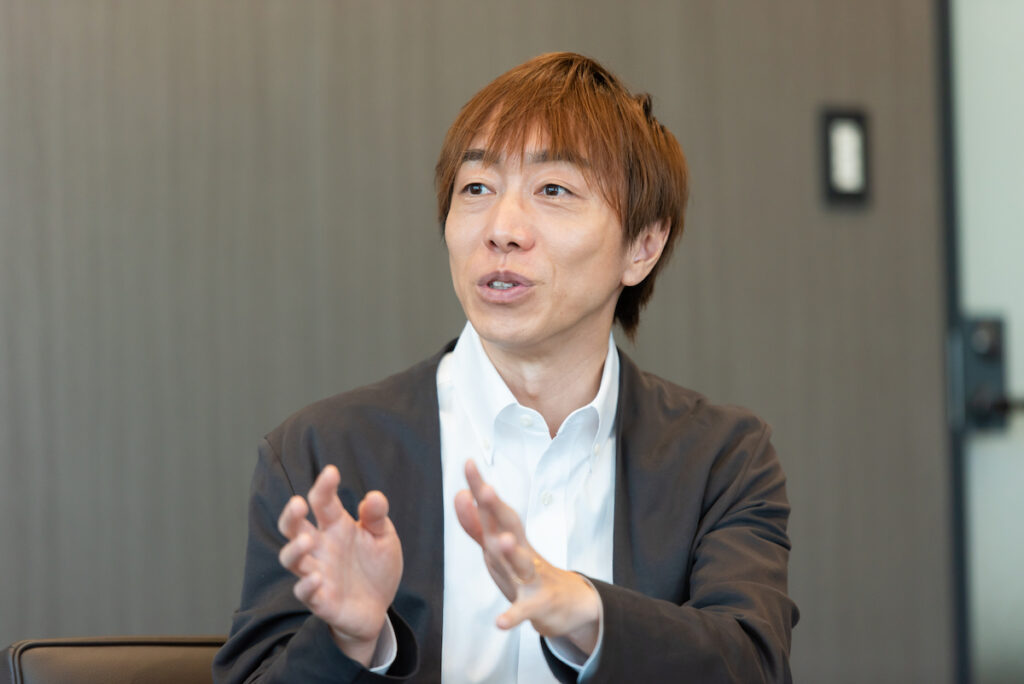

──Since your last interview, Bitcoin entered a bubble in 2021, burst in 2022, and although it started with a negative atmosphere in 2023, it has gradually shown a strong recovery. How did you view this situation?
Sakai:Bitcoin plummeted due to the FTX incident in the fall of 2022, and was below 2.3 million yen around New Year’s in 2023, and I thought, “This is way too cheap.” Winter is not such a bad time for individual investors. We are not managing other people’s money like institutional investors, so if you believe this is a bargain sale, buy at your own risk. It’s important to “give me the tail,” and there aren’t many people who could buy the tail for 2.3 million yen, but if they could buy it for 3 or 4 million yen, they’d be happy enough.
──Over the past year, Bitcoin has risen significantly and the yen has fallen.
Sakai:I’m really wondering, what does “Ritsuki” mean? If you exchange Bitcoin whose price has increased into yen, it does not mean that you will make a profit. The yen has fallen considerably over the past year. I don’t think converting it into US dollars is “profitable.” Prices have risen and the real value of the US dollar has fallen.
──Some Bitcoin maximalists say, “Bitcoin is the only way to make a profit. Exit. Exit.”
Sakai: I understand what that means, but I don’t have enough faith to go that far. Whether it’s Japanese yen or Bitcoin, in the end, money cannot become profitable unless it is converted into people’s happiness. Happiness itself is not for sale, so I think it is almost profitable to buy real estate, not for investment purposes, but for residential purposes. It doesn’t have to be real estate, but I think true profit is made by converting it into a base for a fun or comfortable life.
–In that sense, the security token (digital asset) market backed by real estate is currently growing. Was targeting real estate easier for Japanese people to accept?
Sakai:In fact, I think it’s difficult to use real-world assets, so-called Real Word Assets (RWA), as backing, other than real estate. If we want to create new value as an underlying asset, we must create a new business. In comparison, it is relatively easy to link existing real estate to tokens.
──What is a Web3 business that creates a new business and ties its value to a token?
Sakai: Currently, I am committed to a Web3 project called “ONGAESHI”. This is an education and recruitment project. Broadly speaking, an investor purchases an NFT for the right to take an educational service and lends it to someone who wants to take the course. If a student who learns using the NFT gets a job under this system, the company they work for will pay a fee for the project, and a portion of the fee will become the investor’s return. If this cycle goes well, students will be able to receive education without any burden, companies will be able to secure talented human resources, and investors will receive returns. This tuition ticket NFT is a type of RWA, but the project will not come to fruition unless we create a new business for education and recruitment.
──Who makes the business in ONGAESHI?
Sakai: It’s a company called Institution for a Global Society. We have a strong track record in the field of education and recruitment. Although it is a young company founded by Masahiro Fukuhara in 2010, it is already listed on the Tokyo Stock Exchange Growth, so it is not a startup company. I think RWA is an area where there are high hurdles for startup companies. It is extremely difficult to bring in physical objects to back up the tokens or create a business.
──Recently, large companies such as banks and trading companies have entered the web3 area.
Sakai: Recently, it seems like there are more people in the blockchain community wearing suits than T-shirts, and this is probably the reason. It is difficult to maintain the price of tokens that are not backed by real objects or businesses such as real estate. Bitcoin is a currency that has no real or commercial backing, but the reason its price is basically rising is because it is a special “super brand.” I like tokens like Inucoin and “electronic trash,” but they can’t be like Bitcoin.
The end of a chaotic era
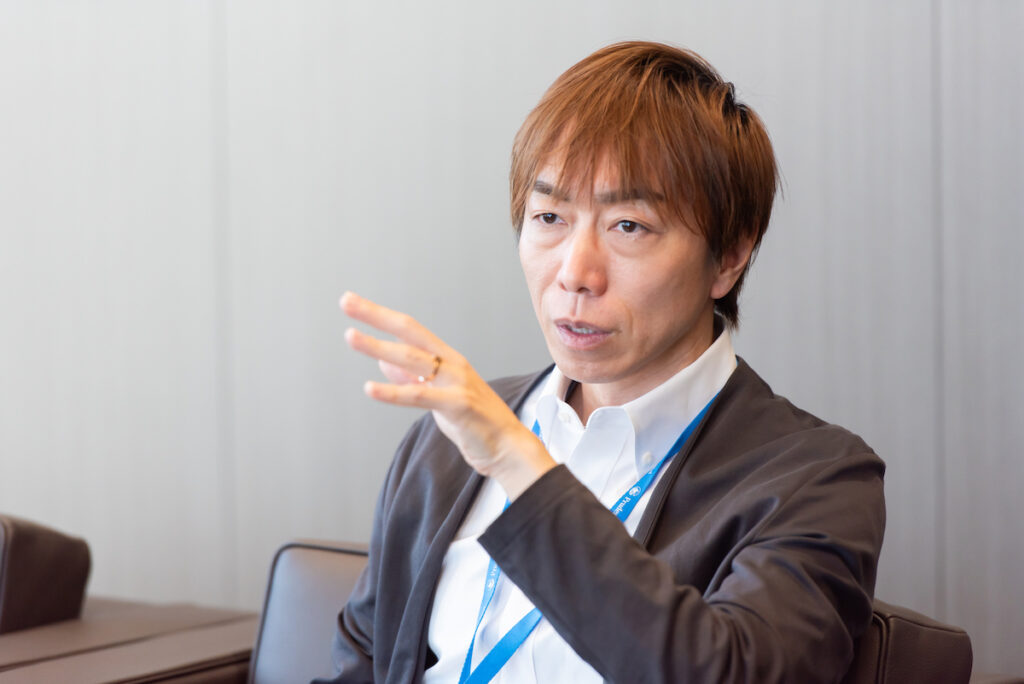

–For the younger generation,In a sense,This seems like an unfortunate trend.
Sakai:In the crypto asset world, I think the chaotic era of unknown young people running up the ladder with their brains and ambitions is over. I don’t want to debate young people, so to put it more politely, I mean that such people will continue to appear in the future, but they will not appear in large numbers and move the times. As far as I know, the people who entered the industry in the chaotic era are still enjoying themselves, and many of them have achieved wealth and status. Is this a case of someone who used to only wear T-shirts now also wearing suits?
I think blockchain will be mainly used for RWA in the future. The protagonist will not be a startup, but a major company.
──What applications do you think blockchain will be especially useful in the future?
Sakai: Carbon credit. It’s like a token, a credit that you can generate if you reduce greenhouse gases. Since it is issued completely electronically, there is no need to link tokens and assets, and the usage is “burn”. For example, a person who has emitted 1 ton of greenhouse gas would buy 1 ton of tokens and burn them.
Currently, there are hundreds or thousands of carbon credits in the world, suitable for buying and selling with smart contracts, and burning is a common practice with crypto assets. The Paris Agreement aims to reduce net greenhouse gas emissions to zero by 2050. Isn’t this the favorite future use of blockchain?
──towards the futureSpeaking of initiatives, the development of regulations regarding DAOs (Decentralized Autonomous Organizations) is being promoted mainly by the Liberal Democratic Party’s web3PT. What are your thoughts on DAO?
Sakai:I like DAO, but I actually don’t have high expectations for it. A vision is essential for an organization, and it also requires a system to instill that vision. There may not be any problems when the number of people is small, but as the number of people increases, people with different ways of thinking will come in.
If it is a company, it will also be necessary to have an internal structure, such as a department in charge of education. Can the DAO have something like that, and how sustainable an organization can it be? I think the only way to find out about this is to look at future social experiments. I think the Liberal Democratic Party’s recent efforts regarding Web3, such as the DAO and tax reform, are wonderful. I feel like Japan’s future will be bright if the ruling party is thinking about new, or rather radical, things like this. It seems that pessimism is widespread in Japan, but I think that pessimism is actually growing or appearing in many places, including politicians. Sota Watanabe, who leads Astar Network, and Masahiro Fukuhara of ONGAESHI are good examples. I also feel that I have to work harder.
–Bitcoin is sometimes referred to as the “ultimate DAO.”
Sakai:If the purpose was as simple as Bitcoin, I think it would be possible to operate a DAO like that. The purpose is to maintain and manage currency. However, for example, I don’t think that complex business such as international remittances can be done with DAO. Existing large financial institutions are good at complex tasks such as persistent communication with each country’s financial authorities and maintaining compliance in each country. I think that “things that only DAO can do” will become the domain of DAO, and I think that maintenance and management of public blockchains will become its main focus. This is because, like Bitcoin, it is necessarily a DAO.
“Suspicious” is the opposite of “new”
──Have the views and evaluations of Bitcoin changed in academia over the past four years?
Sakai: Unfortunately, I don’t think things have changed from four years ago. Even now, I’m probably the only economist who openly admits to liking Bitcoin. I won’t name names, but the economists who were anti-Bitcoin are still anti-Bitcoin. I think they are really stubborn, but I think the cost of being stubborn was pretty high in terms of missed revenue opportunities.
──I have the impression that many people from central banks are not very positive about crypto assets, including Bitcoin.
Sakai:I think there is a tendency. You probably see the world differently. So which worldview is more correct? After all, Bitcoin is an asset, so isn’t it fair to judge it based on whether the price has gone up or down? That’s the answer.
──There is a high possibility that Bitcoin will finally be approved as a spot ETF (exchange traded fund) in the United States, and it seems likely that it will be accepted by many people in the future. Will the number of people who view it as “suspicious” decrease?
Sakai:I think the approval of the Bitcoin spot ETF will be a major turning point as it will give Bitcoin a place in existing finance. When it comes to “suspicious”, I think the reason why many people still feel that way is “new”. Living things are basically conservative. I’m wary of most new things, calling them suspicious. This is a trait acquired through the process of evolution, and if you see something new in the savannah, you have to be careful or you won’t be able to survive. However, capitalism is not a savanna but an artificial space. The instinct for surviving the savannah is not necessarily suited to surviving capitalism.
──What do you expect from crypto assets and blockchain in 2024?
Sakai: It would be great if the projects that you worked hard on during the winter succeed one after another. However, rather than placing expectations on other people’s projects, I would like to see the projects and companies I am involved in succeed. I would like to contribute to the success of the ONGAESHI project that I mentioned earlier, the Chainsight project that promotes the use of on-chain data, and the Web3 startup Gaudiy that I have been involved with for a long time. Expecting more from yourself rather than from others is in harmony with the basic stance of Bitcoin and Web3, which respects individual autonomy.
Four years ago, when I talked about Bitcoin, I had to be more “obsessed” and explain its potential. There’s no need for that anymore. It’s easy to say easy, but it can also be said that it’s less fun than before. There is no doubt that this is a positive change.
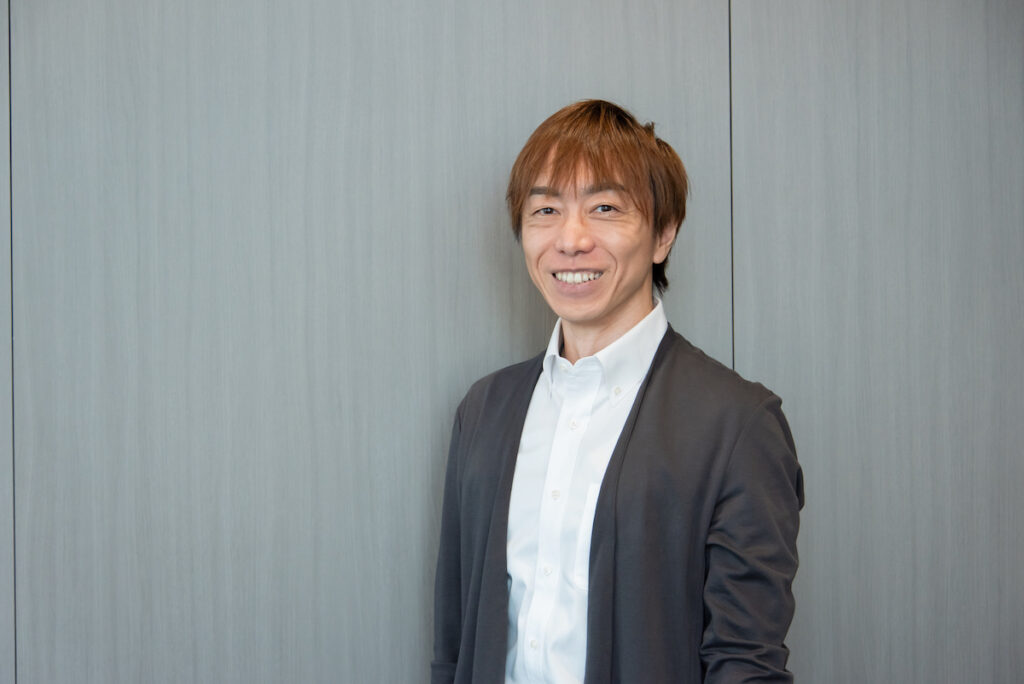

Toyuki Sakai
Professor, Faculty of Economics, Keio University. He holds a Ph.D. in economics from the University of Rochester. His research interests include the design of rating algorithms, group decision-making, and market rules. In 2020, he co-founded Economics Design Inc., which implements business economics, and became a director. He has also served as an outside director of Prudential Life Insurance Co., Ltd. since 2022. He is involved in Web3 businesses such as Astar Network, Chainsight, Gaudiy, and ONGAESHI as a member, advisor, and angel investor. His main book, “Doubting Majority Decision” (Iwanami Shinsho), is published in high school textbooks. His works on Bitcoin include “Cryptocurrency vs. Nation” (SB Shinsho).
|Interview/Text: Takayuki Masuda
|Photo: Airi Okonoki
The post What is the future of Bitcoin after undergoing the grand social experiment of monetary easing? Professor Toyotaka Sakai of Keio University | CoinDesk JAPAN appeared first on Our Bitcoin News.

 1 year ago
108
1 year ago
108

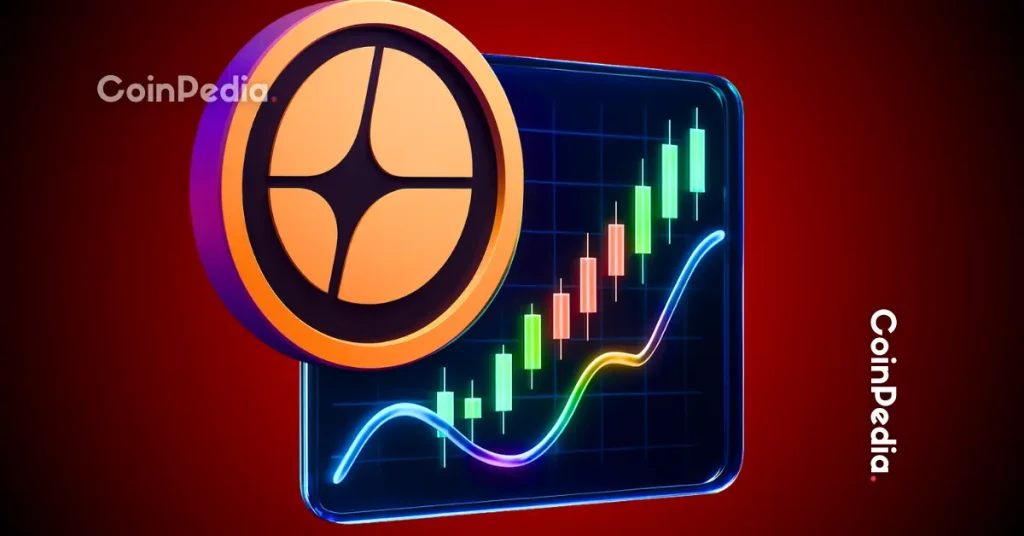

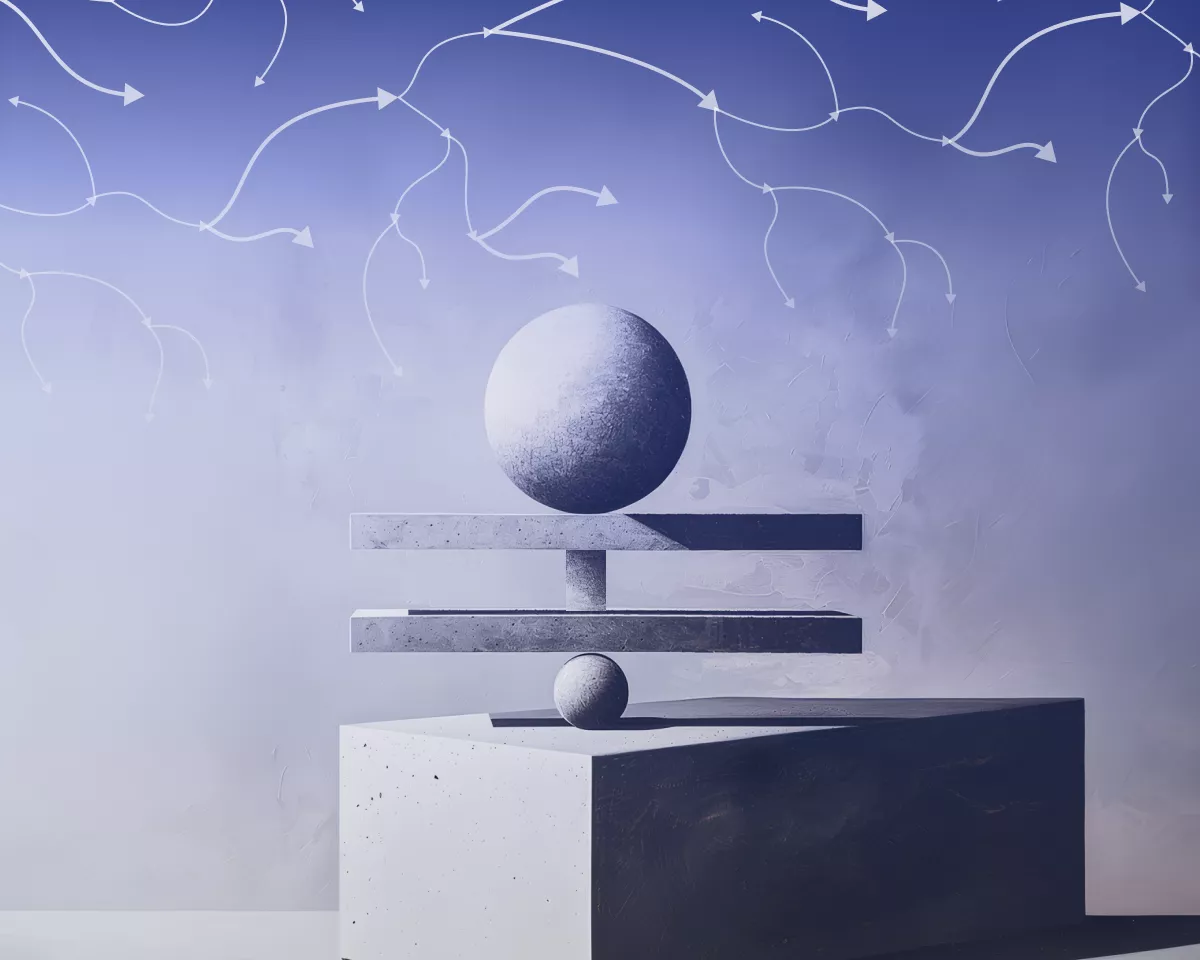










 English (US) ·
English (US) ·